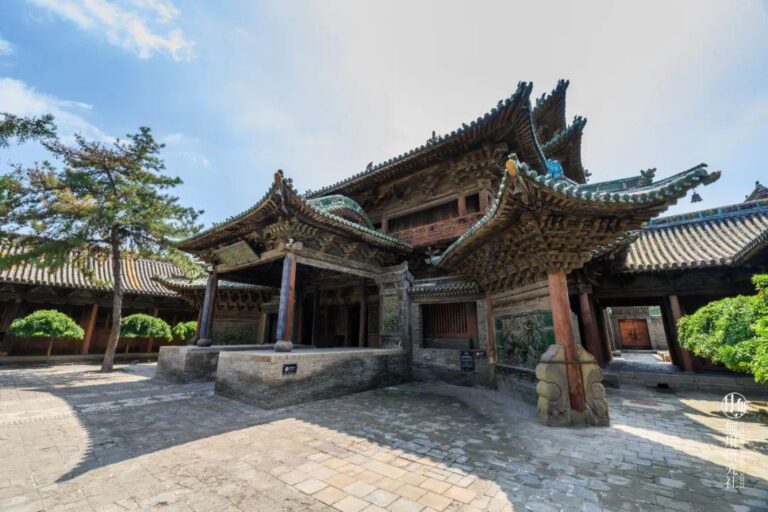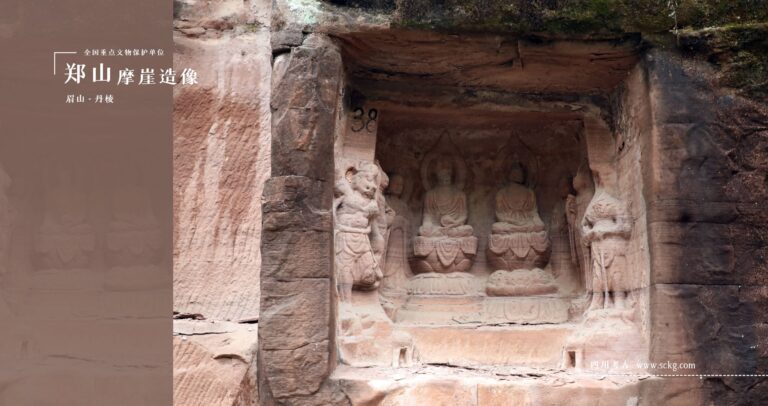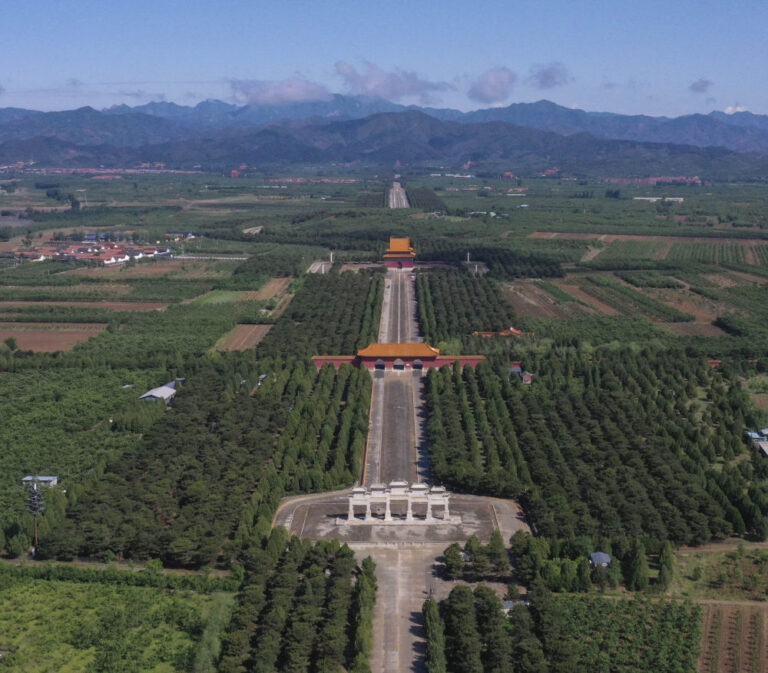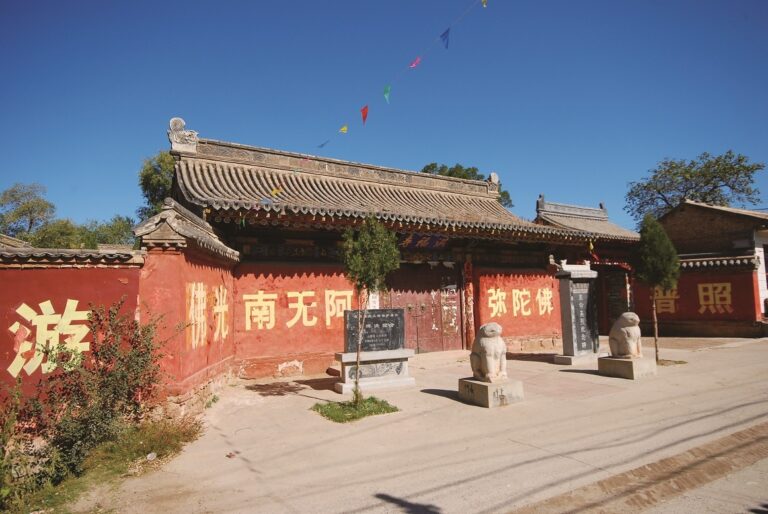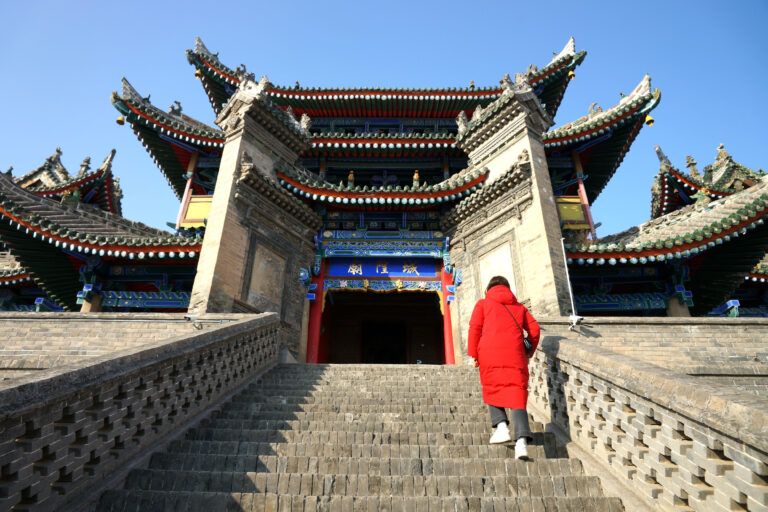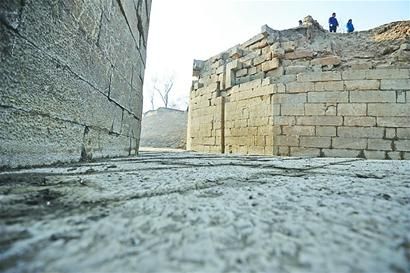Hebi Fangchengyan: Must-See Attractions and Local Secrets in Henan, China
An Essential Guide to Visiting Hebi Fangchengyan
In This Guide
- An Essential Guide to Visiting Hebi Fangchengyan
- The Rich History of Hebi Fangchengyan
- Main Highlights: What to See at Hebi Fangchengyan
- Planning Your Visit: A Practical Guide
- Tickets, Hours, and Booking
- How to Get There
- Local Cuisine and Accommodation
- Frequently Asked Questions
- Final Thoughts on Your Trip
Nestled in the northern part of Henan Province, Hebi Fangchengyan (枋城堰) emerges as a hidden gem within the historically rich city of Hebi. This picturesque area combines natural beauty with cultural significance, making it an ideal destination for travelers seeking both adventure and tranquility. With its serene landscapes and vibrant local culture, Fangchengyan offers a unique glimpse into the heart of China’s ancient heritage.
As you explore the lush greenery and flowing waters of this scenic region, you will uncover the stories that span thousands of years, from the legendary tales of the Shang Dynasty to the whispers of the Warring States period. The backdrop of majestic mountains and pristine rivers not only serves as a feast for the eyes but also invites visitors to engage in a myriad of outdoor activities, from hiking and boating to photography and bird watching.
Fangchengyan is not just about its stunning vistas; it’s also an opportunity to indulge in the local flavors that define Hebi’s culinary scene. The region is celebrated for its unique dishes that reflect the rich agricultural heritage of the area, ensuring that every meal is a delightful experience.
Whether you are an avid history buff, a nature enthusiast, or a foodie, Hebi Fangchengyan promises an unforgettable journey filled with exploration and discovery. Prepare to immerse yourself in the enchanting beauty and cultural tapestry that this captivating destination has to offer.
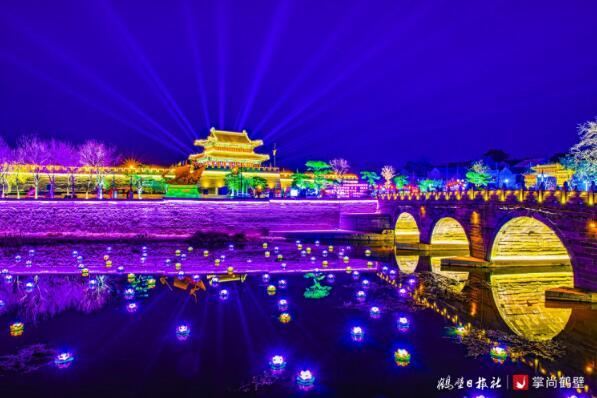
Hebi Fangchengyan.
The Rich History of Hebi Fangchengyan
Hebi Fangchengyan, located in the northern part of Henan Province, is steeped in a rich tapestry of history that dates back thousands of years. This ancient site is not just a geographical landmark; it embodies the cultural and historical significance of the region, particularly as it relates to the Shang Dynasty and the legendary tales of Chinese mythology.
During the late Shang Dynasty, the city of Hebi served as the capital of the Shang dynasty, known as Chaoge (朝歌). As the heart of the dynasty, it was a bustling center of political power and cultural development. The remnants of this illustrious past can be seen in the archaeological sites scattered throughout the area, including the famous Zhaixing Tai (摘星台) or “Star Picking Platform,” which is said to be where the last king of the Shang Dynasty, King Zhou, observed celestial phenomena. This site is a testament to the sophisticated understanding of astronomy that ancient Chinese civilizations possessed.
The historical significance of Fangchengyan extends beyond the Shang Dynasty. The region is also closely associated with the legends of the “Investiture of the Gods” (封神演义), a classic Chinese novel that intertwines history and myth. Many characters from this epic, which narrates the fall of the Shang and the rise of the Zhou Dynasty, are believed to have connections to the landscapes and locations in and around Hebi, adding a layer of mystique to the area.
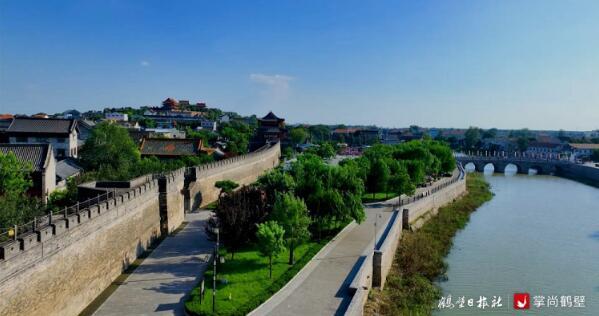
Hebi Fangchengyan.
In addition to its mythological connections, Hebi has been a witness to various significant events throughout Chinese history. The city has seen the rise and fall of dynasties, including the Zhou, Han, and Tang, each leaving their mark on the local culture and architecture. The ancient streets, temples, and historical relics provide a glimpse into the daily lives and spiritual practices of the people who once thrived here.
Today, Hebi Fangchengyan stands as a symbol of the rich cultural heritage of the region. Visitors can explore its many historical sites, such as the relics of ancient military academies, the remnants of old city walls, and the picturesque landscapes that once inspired poets and philosophers. The harmonious blend of nature and history makes this destination not only a place to learn about the past but also a serene escape into a world where legends come alive.
As you walk through the ancient pathways of Hebi Fangchengyan, you are not just traversing a physical space; you are stepping into the chronicles of time, where every stone and monument tells a story of its own.
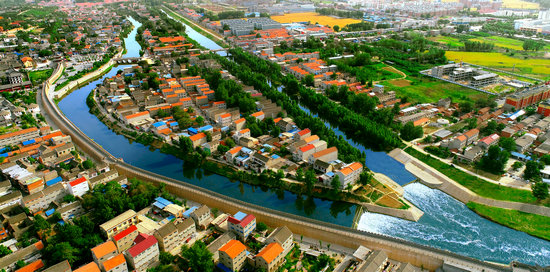
Hebi Fangchengyan.
Main Highlights: What to See at Hebi Fangchengyan
Hebi Fangchengyan, located in the enchanting city of Hebi in Henan Province, offers a captivating blend of history, culture, and natural beauty. Here are some of the main highlights that make this destination a must-visit.
Scenic Wonders
Yunmeng Mountain Scenic Area
Often dubbed the “Little Guilin of Central China,” Yunmeng Mountain is renowned for its stunning landscapes, featuring lush greenery, dramatic cliffs, and serene lakes. The area is steeped in history, having served as a significant location for ancient scholars, including the famed strategist Guiguzi. Visitors can explore various hiking trails, marvel at the majestic waterfalls, and enjoy breathtaking views from the mountain peaks, especially during sunrise when the fog blankets the valleys below.
Dapi Mountain
Home to one of the largest stone Buddha statues in northern China, Dapi Mountain is a spiritual haven that attracts pilgrims and tourists alike. The towering Buddha, intricately carved into the mountainside, stands as a testament to the region’s rich Buddhist heritage. The surrounding area is dotted with ancient temples and stone carvings, making it a perfect spot for those seeking both tranquility and cultural enlightenment.
Qihe River
Known as the “Mother River” of Hebi, the Qihe River flows through the city, offering picturesque views and a refreshing escape from the summer heat. The riverbanks are lined with lush greenery, making it an ideal location for leisurely strolls, picnics, and even water activities like kayaking. The charming river scenery is particularly enchanting at sunset, when the sky reflects on the water’s surface, creating a magical atmosphere.
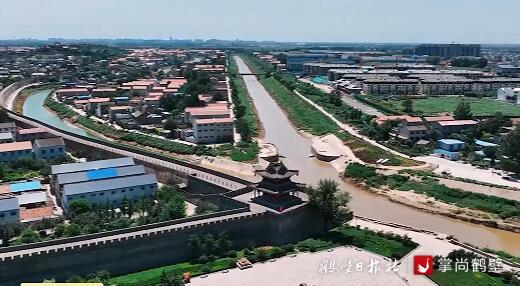
Hebi Fangchengyan.
Cultural Experiences
Zhaoge Ruins
As the ancient capital of the Shang Dynasty, Zhaoge (now part of Hebi) is rich in archaeological significance. Visitors can explore the Zhaoge ruins, where artifacts and remnants of the Shang civilization have been unearthed. The site provides a fascinating glimpse into China’s early history and allows travelers to walk through the remnants of structures that once thrived during one of China’s most pivotal dynasties.
Local Cuisine
No trip to Hebi is complete without indulging in its culinary delights. The famous “Qihe Crucian Carp” is a must-try dish, known for its delicate flavor and freshness. Additionally, the unique “Stone Cake” (Shizimeng) offers a delightful experience, as it is grilled on hot stones, giving it a crispy texture that pairs perfectly with various fillings. Don’t miss the chance to sample local snacks and delicacies in the bustling markets.
Accessibility and Accommodation
Hebi’s convenient transportation links make it an easy destination to explore, whether you’re arriving by high-speed train or car. The city boasts a range of accommodations, from budget-friendly hotels to more luxurious options, ensuring that every traveler finds their perfect base. For a unique stay, consider a local guesthouse that offers a taste of traditional Chinese hospitality.
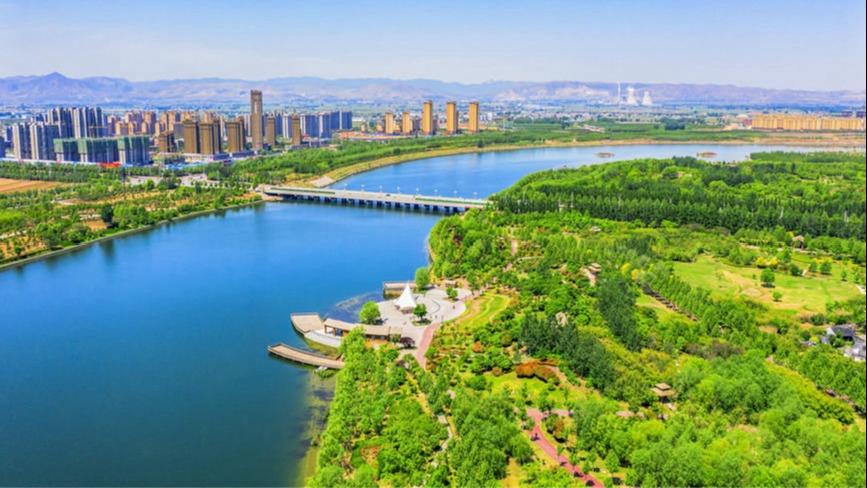
Hebi Fangchengyan.
In conclusion, Hebi Fangchengyan is a hidden gem that promises an unforgettable experience, blending natural beauty with rich cultural heritage. Whether you’re hiking in the mountains, exploring ancient ruins, or savoring delicious local dishes, this destination has something to offer every traveler.
Planning Your Visit: A Practical Guide
Practical Guide to Hebi Fangchengyan (枋城堰)
Nestled in Henan province, Hebi Fangchengyan offers a blend of historical charm and natural beauty. This practical guide will help you navigate your journey to this captivating destination, ensuring you make the most of your visit.
Getting There
By Air:
The nearest major airport is Zhengzhou Xinzheng International Airport. From there, you can take a high-speed train to Hebi East Station, which takes about 1.5 hours.
By Train:
Hebi is well-connected by high-speed rail. The Hebi East Station and Hebi Station are accessible from various cities, including Zhengzhou and Beijing. Expect travel times of approximately 2.5 hours from Beijing to Hebi.

Hebi Fangchengyan.
By Bus:
Long-distance buses operate from cities such as Zhengzhou and Anyang. Public transportation within Hebi includes buses and taxis, making it easy to reach local attractions.
By Car:
For those who prefer driving, renting a car is a great option. The journey from Zhengzhou via the G4 Beijing-Hong Kong-Macau Expressway takes about 2 hours. Make sure to have a GPS or map app handy for navigation.
Best Time to Visit
Hebi experiences a temperate climate, with the best times to visit being from April to June and September to November. Spring and autumn offer pleasant weather ideal for exploring the natural landscapes and historical sites.
Key Attractions
-
Fangchengyan Water Conservancy Project: A historical marvel of engineering, this site showcases ancient water management techniques. The scenic views of the reservoir are perfect for photography enthusiasts.
-
Yunmeng Mountain Scenic Area: Often referred to as “the Little Guilin of Central China,” this picturesque area features unique rock formations and lush landscapes. It’s ideal for hiking and enjoying nature.
-
Da Pi Mountain: Home to one of the largest stone Buddha statues in northern China, Da Pi Mountain offers a blend of spiritual and natural beauty. The mountain is also dotted with numerous historical relics.
-
Historical Sites: Explore the remnants of ancient cities, including the ruins of the Shang Dynasty capital, Chaoge, which is rich in historical significance.
Culinary Highlights
Hebi is renowned for its local delicacies. Be sure to try:
– Chuanzi: A traditional local dish made from wheat flour, often served with various fillings.
– Hebi Carp: Freshwater fish dishes, particularly the carp from the nearby rivers, are a must-try.
– Fangcheng Egg: A unique local delicacy that’s flavorful and popular among visitors.
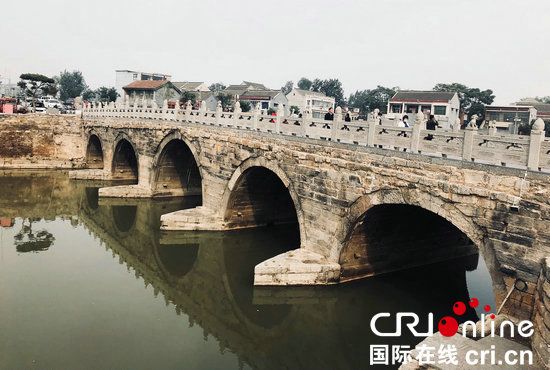
Hebi Fangchengyan.
Accommodation
Hebi offers a variety of lodging options to suit different budgets:
– Luxury Hotels: Consider the Hilton Garden Inn or local high-end hotels for a comfortable stay.
– Mid-Range Options: Many guesthouses and boutique hotels provide a cozy atmosphere and personalized service.
– Budget Stays: Hostels and budget hotels are available, especially near the train stations for convenience.
Transportation within Hebi
The city has a reliable and affordable public transport system. Local buses connect various attractions. Taxis and ride-sharing services are also widely available. For a more leisurely experience, consider renting a bicycle to explore the scenic areas.
Tips for Travelers
- Language: While Mandarin is the primary language, learning a few basic phrases can enhance your experience.
- Cash: Although mobile payment is common, it’s wise to carry some cash for local markets and smaller vendors.
- Weather Preparedness: Check the weather forecast before your visit and pack accordingly. Summers can be hot, so lightweight clothing and sun protection are advisable.
- Respect Local Customs: Be mindful of local traditions, especially when visiting religious or historical sites.
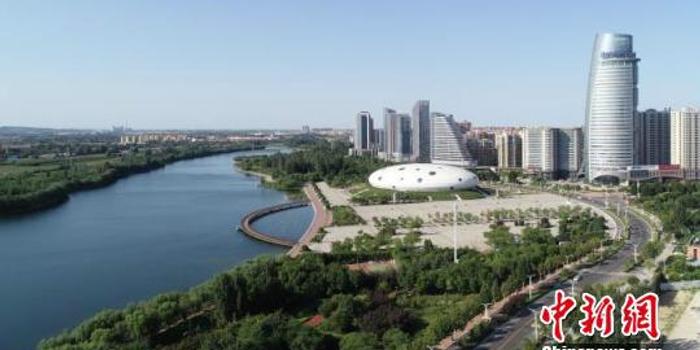
Hebi Fangchengyan.
Conclusion
With its rich history, stunning landscapes, and delicious cuisine, Hebi Fangchengyan offers an enriching experience for travelers. By following this guide, you’ll navigate your visit with ease, ensuring a memorable adventure in this hidden gem of Henan province.
Tickets, Hours, and Booking
When planning your visit to Hebi Fangchengyan (枋城堰), it’s important to be aware of the ticketing details for the various attractions in the area. Here’s what you need to know:
Ticket Information
The ticket prices for attractions around Hebi can vary, so it’s advisable to check in advance and consider purchasing tickets online to avoid long queues. Below are the approximate prices for some popular sites:
-
Yunmeng Mountain Scenic Area (雲夢山景區): Entry is around 60 CNY (approximately 9 USD). Discounts are available for students and seniors, so be sure to bring relevant identification.
-
Daping Mountain Scenic Area (大伾山景區): Tickets are approximately 50 CNY (about 7 USD), which includes access to the famous large stone Buddha and other historical sites.
-
Guling Mountain (古靈山): The entry fee is about 33 CNY (around 5 USD). This picturesque area is known for its lush scenery and significant mythological history.
-
Qihe National Wetland Park (淇河國家濕地公園): Entry to this natural paradise is free, making it an excellent option for budget-conscious travelers looking to explore the great outdoors.
-
Sangyuan Town (桑園小鎮): This charming town offers free entry, though certain activities may have separate fees.
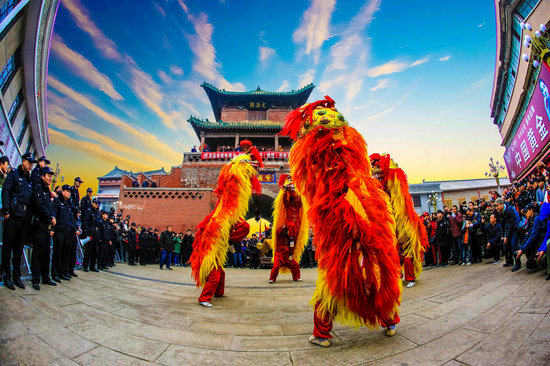
Hebi Fangchengyan.
For a seamless experience, consider booking your tickets through major travel platforms or the official websites of these attractions. Many sites offer online discounts, and some special events may require advance reservations.
Additional Tips
-
Discounts: Various discounts are available for specific groups such as students, seniors, and military personnel. Always check for eligibility to save on costs.
-
Payment Methods: Most attractions accept mobile payments, which are widely used in China. It’s advisable to have a local payment app set up to make transactions easier.
-
Combo Tickets: If you’re planning to visit multiple attractions, look for combo tickets that can save you money and provide convenience.
Be sure to check the latest updates on ticket prices, as they can change seasonally or during special events. Enjoy your adventure in Hebi, where history and nature come together beautifully!
How to Get There
Navigating to and around Hebi Fangchengyan (枋城堰) is quite convenient, making it an ideal destination for both domestic and international travelers. Here’s a comprehensive transportation guide to help you plan your visit seamlessly.

Hebi Fangchengyan.
Getting There
By Air
The nearest major airport is Zhengzhou Xinzheng International Airport (CGO), which is approximately 100 kilometers away from Hebi. Upon landing, you can take an airport shuttle bus to the city center or opt for a taxi. The journey typically takes around 1.5 to 2 hours, depending on traffic.
By Train
Hebi is well-connected by high-speed rail. The Hebi East Railway Station (鶴壁東站) serves as the primary hub for high-speed trains, linking it to major cities like Beijing, Zhengzhou, and Xi’an. From Zhengzhou, the journey to Hebi takes about 30-40 minutes. Regular trains also operate from other regional cities, making train travel a convenient option for visitors.
By Bus
Long-distance buses frequently run from Zhengzhou and other nearby cities to Hebi. The main bus station in Hebi is well-organized, providing connections to various destinations within the city and surrounding areas. Buses are an economical choice, though travel times may vary based on the route and traffic conditions.
Local Transportation
Public Transit
Once in Hebi, the city has a reliable public bus system that covers most areas, including popular tourist sites. You can catch buses to destinations like Yunmeng Mountain Scenic Area and various local attractions. Bus fares are generally low, making it a budget-friendly option for getting around.
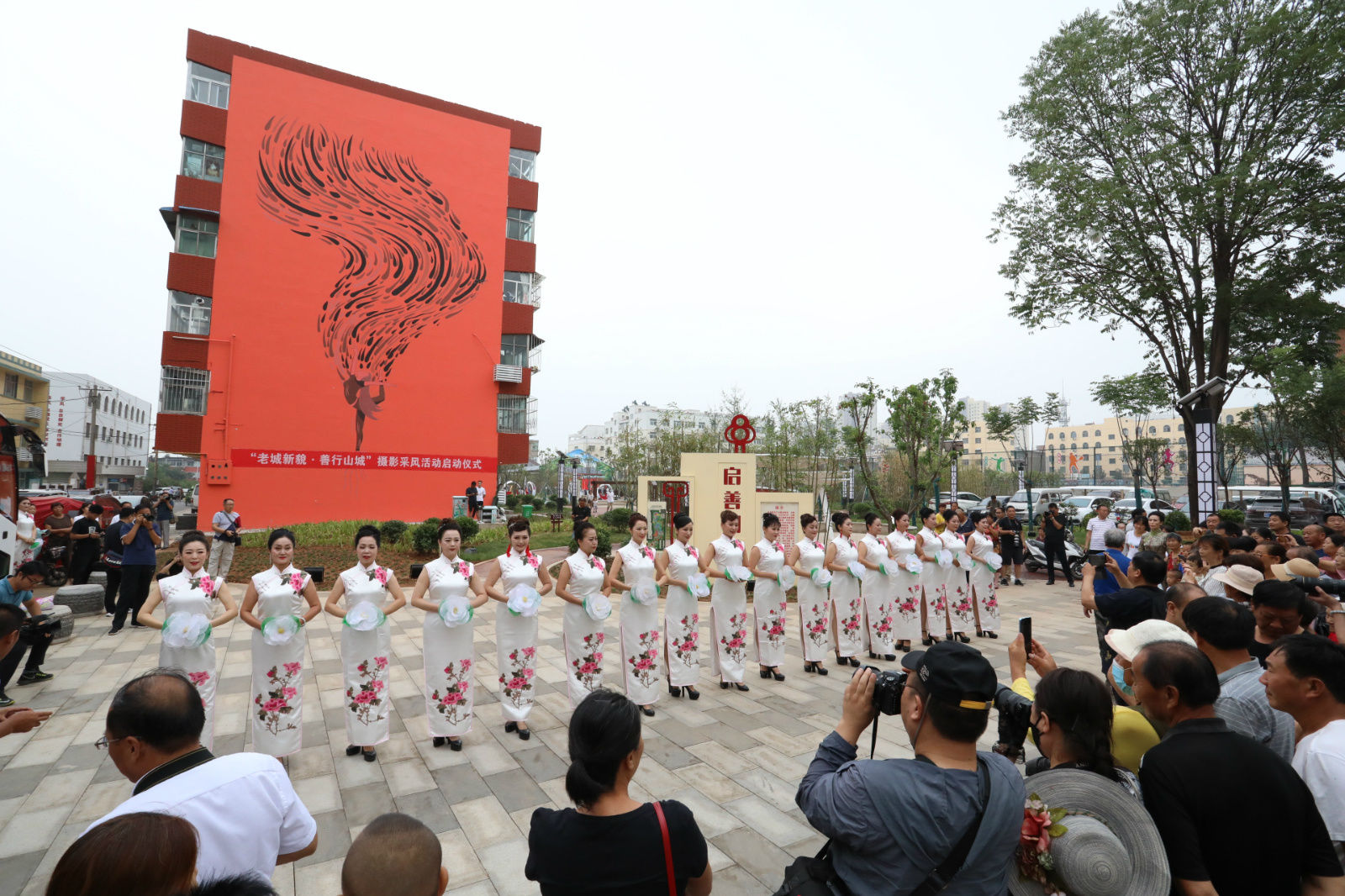
Hebi Fangchengyan.
Taxis and Ride-Sharing
Taxis are readily available throughout Hebi and can be hailed on the street or booked via phone. Additionally, ride-sharing services like Didi Chuxing are operational in the area, allowing for convenient and often more comfortable travel compared to public transit.
Car Rentals
For those looking to explore at their own pace, renting a car is a viable option. Several rental services operate in Hebi, and the road conditions are generally good. Renting a car can provide the freedom to visit attractions that may be less accessible by public transport.
Bicycles
Bike-sharing programs are increasingly popular in urban areas of China, including Hebi. Renting a bicycle is a great way to explore the city and enjoy the scenic routes along the Qihe River or through the tranquil parks.
Tips for Travelers
- Language: English is not widely spoken, so having a translation app or a phrasebook can be helpful when navigating transportation options.
- Cash: While many taxis and local services accept digital payments, it’s advisable to carry some cash for smaller transactions, especially when using public buses.
- Timing: Public transport can be less frequent during off-peak hours, so plan your itinerary accordingly to ensure smooth connections.
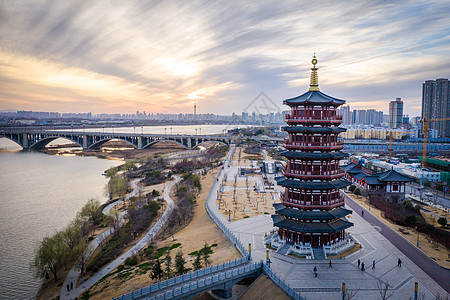
Hebi Fangchengyan.
With these transportation options and tips, your visit to Hebi Fangchengyan can be both enjoyable and hassle-free, allowing you to fully immerse yourself in the local culture and stunning scenery.
Local Cuisine and Accommodation
When visiting Hebi Fangchengyan, you’ll find a delightful mix of local flavors and comfortable accommodations that cater to various preferences and budgets.
Culinary Highlights
Hebi is a treasure trove of unique culinary experiences, showcasing the rich flavors of the region. Here are some must-try local dishes that will tantalize your taste buds:
-
Ciliated Duck Eggs (纏絲鴨蛋): This signature dish features duck eggs with a vibrant, swirling yolk reminiscent of rainbow patterns. They are often enjoyed with a side of congee, making for a harmonious blend of flavors.
-
Qi River Crucian Carp (淇河鯽魚): Renowned for its delicate texture, this fish is a local delicacy. The tender meat melts in your mouth and is best enjoyed steamed or in a light broth.
-
Stone-Fired Bread (石子饃): Cooked on heated stones, this unique bread is crispy on the outside and soft within. It pairs wonderfully with various fillings, from meats to vegetables.
-
Seedless Dates (無核棗): A sweet treat that is perfect for snacking, these dates are easy to eat and beloved by both locals and visitors alike.
-
Mulberry Leaf Tea (桑葉茶): Ideal for cooling down in the summer heat, this refreshing tea is not only delicious but also offers health benefits.
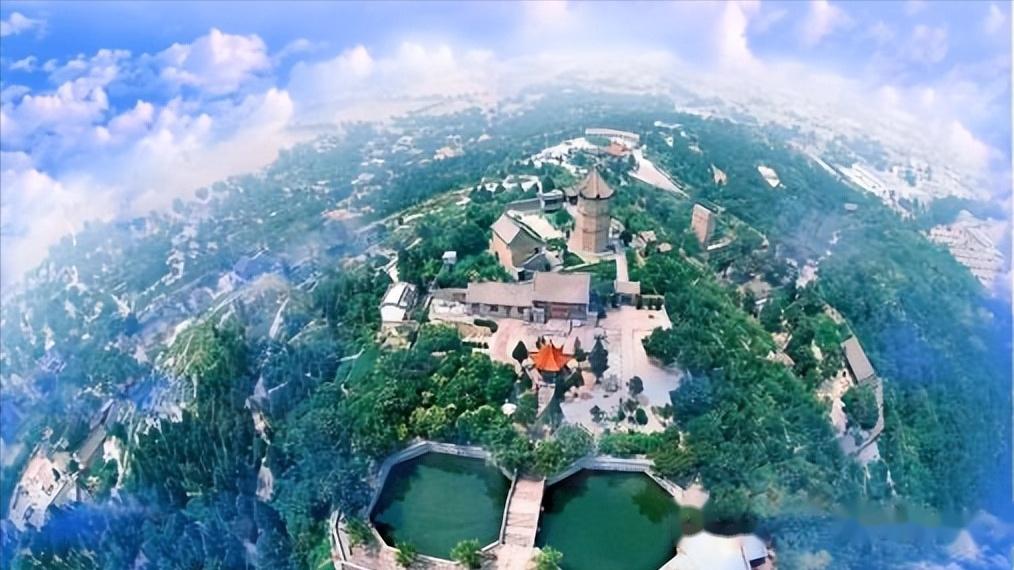
Hebi Fangchengyan.
Where to Stay
Accommodations in Hebi Fangchengyan range from luxurious hotels to charming guesthouses, ensuring that every traveler finds a suitable place to rest after a day of exploration.
-
Hilton Garden Inn Hebi: Located near Hebi East Railway Station, this hotel provides a convenient base for your travels. Guests can expect modern amenities, comfortable rooms, and a complimentary nutritious breakfast to start the day.
-
Qi River Hotel: Nestled by the picturesque Qi River, this hotel offers beautiful views and easy access to local attractions. The rooms are well-appointed, and the onsite restaurant features a selection of local dishes.
-
Yunmeng Mountain Inn: For those looking to immerse themselves in nature, this inn offers a serene experience at the foot of Yunmeng Mountain. Guests can enjoy a peaceful environment, comfortable accommodations, and opportunities for hiking and exploration.
-
Homestays in Sangyuan Town: Experience local hospitality by staying in a homestay. These accommodations offer a chance to engage with local culture, enjoy homemade meals, and often provide guided tours of the area.
Whether you’re savoring the local cuisine or enjoying a restful night, Hebi Fangchengyan promises a memorable experience that combines culinary delights with warm hospitality.
Frequently Asked Questions
-
What are the must-visit attractions near Hebi Fangchengyan?
Hebi Fangchengyan is surrounded by several notable attractions. Don’t miss the Yunmeng Mountain Scenic Area, known for its stunning landscapes and historical significance as the teaching site of the ancient philosopher Guiguzi. Other highlights include the Dapi Mountain with its impressive cliffside Buddha and the ancient town of Xunxian, which showcases traditional architecture and cultural relics. -
How can I get to Hebi Fangchengyan?
The easiest way to reach Hebi Fangchengyan is by high-speed train to Hebi East Station from major cities like Zhengzhou or Beijing. From the station, you can take a taxi or public bus to the scenic area. Local transport options, such as buses and taxis, are readily available for getting around the city and its attractions. -
What is the best time to visit Hebi Fangchengyan?
The ideal time to visit is during spring (April to June) and autumn (September to November) when the weather is mild and the scenery is particularly beautiful. Summers can be hot, with temperatures often exceeding 30°C (86°F), while winters can be chilly, so plan accordingly. -
Are there any entrance fees for visiting the scenic area?
Yes, there are entrance fees for most attractions around Hebi Fangchengyan. For example, tickets for Yunmeng Mountain Scenic Area are approximately 60 CNY (about $9), while Dapi Mountain has a fee of around 50 CNY (about $7.50). Discounts may be available for students and seniors, so carry valid identification. -
What local food should I try while visiting?
While in Hebi, be sure to sample local specialties like the “Twisted Silk Duck Egg,” known for its unique texture and flavor, and “Xunxian Zimo,” a traditional stuffed pancake baked on hot stones. The area’s rivers provide fresh fish, making dishes like “Qihe Crucian Carp” a local favorite. -
What accommodation options are available near Hebi Fangchengyan?
Accommodation options range from budget hostels to mid-range hotels. Popular choices include the Hilton Garden Inn near Hebi East Station for convenience, and local guesthouses offering a more authentic experience in traditional settings. It’s advisable to book in advance during peak travel seasons. -
Is there public transportation available in the area?
Yes, Hebi has a reliable public transportation system, including buses that connect major attractions. Taxis and ride-sharing services are also accessible for more direct routes. For those wishing to explore at their own pace, renting a car may be a convenient option. -
What activities can I do in and around Hebi Fangchengyan?
Visitors can enjoy a variety of activities, such as hiking in the picturesque mountains, exploring cultural sites, and sampling local cuisine. Water activities along the Qi River can also be a fun way to spend a hot day. Photography enthusiasts will find plenty of scenic spots for stunning pictures, especially during sunrise and sunset.
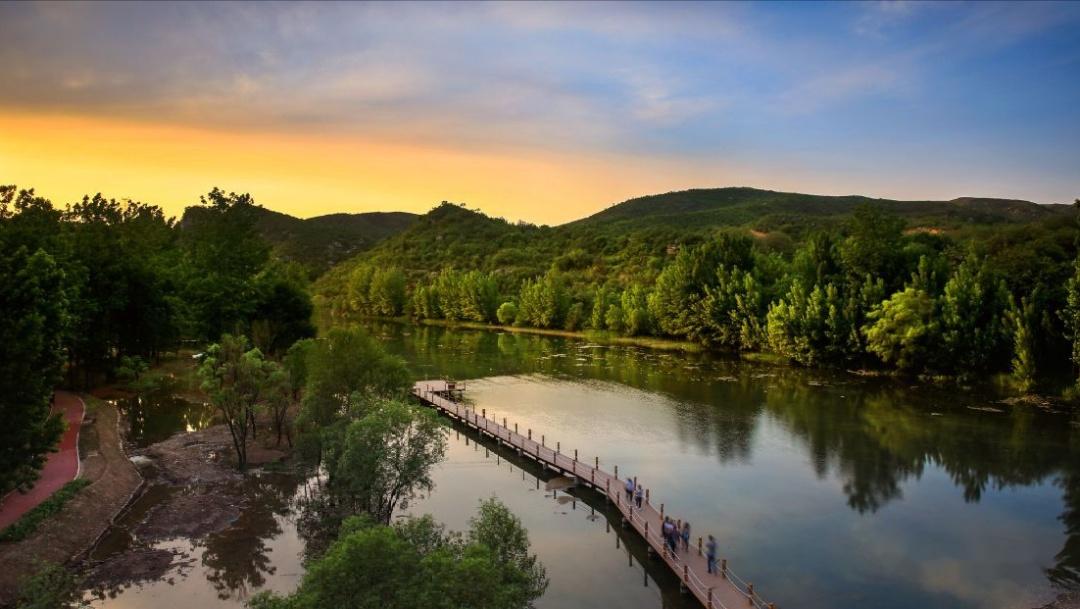
Hebi Fangchengyan.
Final Thoughts on Your Trip
Whether you are a history enthusiast, a nature lover, or a culinary explorer, Hebi Fangchengyan offers a captivating experience that intertwines the rich tapestry of Chinese culture with stunning landscapes. This hidden gem in Henan Province invites you to delve into its historical significance and natural beauty, from the awe-inspiring cliffs of Yunyun Mountain to the tranquil banks of the Qihe River.
As you wander through the ancient streets of the city and savor local delicacies such as the unique strands of duck eggs or the savory zimo, you’ll find that every corner of Hebi tells a story. Each site, whether it be a majestic temple or a serene park, beckons you to uncover the layers of its past while enjoying the vibrant present.
Plan your journey to Hebi Fangchengyan and allow yourself the time to fully immerse in this enchanting destination. Whether you spend a weekend or a longer stay, the memories created here will linger long after you leave, reminding you of the beauty and richness that lie just off the beaten path. Embrace the adventure, and let Hebi’s charm captivate your heart!
